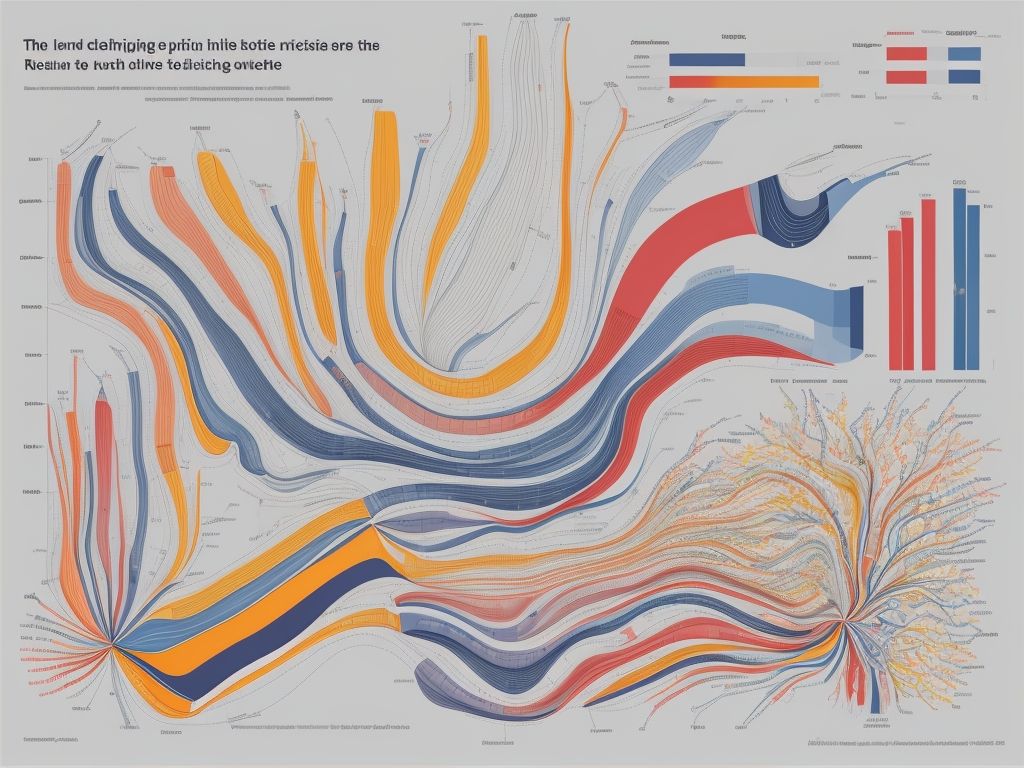Suffolk University Polls: Shaping Massachusetts’ Political Landscape
The History of Suffolk University Polls in Massachusetts
Suffolk University has a long-standing tradition of conducting polls in the state of Massachusetts. These polls have provided valuable insights into the political landscape of the state, shaping public discourse and influencing decision-making processes. Over the years, Suffolk University polls have become a trusted source of information for politicians, journalists, and the general public, garnering a reputation for accuracy and reliability.
Since the inception of Suffolk University polls in Massachusetts, the methodology has evolved to adapt to changing trends and advancements in technology. Utilizing a combination of telephone surveys, online polling, and data analysis, Suffolk University has been able to capture the pulse of the electorate with precision. With a commitment to transparency and ethical conduct, Suffolk University polls have continued to play a crucial role in informing the public and shaping the political landscape of the state.
The Methodology Behind Suffolk University Polls
Suffolk University Polls employ a combination of live telephone interviews and online surveys to gather data from a representative sample of Massachusetts voters. The polling process begins with a random selection of phone numbers using both landlines and cell phones to ensure a diverse cross-section of the population is reached. Trained interviewers then conduct surveys that cover a range of political and social issues to gauge public opinion accurately.
To supplement their phone surveys, Suffolk University Polls also utilize online surveys to capture insights from respondents who prefer to participate digitally. This multi-method approach aims to gather a comprehensive view of voter sentiment in Massachusetts. The data collected is meticulously analyzed to provide reliable and informative results that offer valuable insights into the political landscape of the state.
Key Findings from Recent Suffolk University Polls
In recent Suffolk University polls conducted in Massachusetts, it was revealed that the majority of voters in the state support the implementation of stricter gun control measures. The polls also indicated a growing concern among residents about the rising cost of living in the state, with housing affordability being a top issue on voters’ minds. Additionally, the findings highlighted a general satisfaction among Massachusetts residents with the performance of the state government in handling the COVID-19 pandemic.
Furthermore, the recent Suffolk University polls shed light on the prevailing attitudes of voters towards climate change policies. A significant portion of respondents expressed support for initiatives aimed at combating climate change, indicating a growing awareness and concern about environmental issues among Massachusetts residents. Overall, these key findings provide valuable insights into the priorities and preferences of voters in the state, offering essential information for policymakers and political candidates to consider in their decision-making process.
The Impact of Suffolk University Polls on Political Campaigns
Suffolk University Polls have played a significant role in shaping the dynamics of political campaigns in Massachusetts. Candidates often monitor these polls closely to gauge public opinion and adjust their strategies accordingly. The results of these polls can influence campaign messaging, resource allocation, and overall campaign momentum.
Moreover, the media and voters alike pay attention to Suffolk University Polls, as they provide valuable insights into the current political landscape. Candidates who perform well in these polls can gain momentum and attract more support, while those who fall behind may need to reassess their campaign strategies. Ultimately, Suffolk University Polls have the power to shape the narrative of political campaigns and sway public perception of candidates and issues.
How Suffolk University Polls Influence Voter Behavior
Suffolk University’s polling data plays a significant role in shaping the perceptions of voters in Massachusetts. When voters are exposed to Suffolk University’s poll results, it can influence their opinions and potentially sway their voting decisions. The credibility and reputation of Suffolk University as a respected institution lend weight to its polling findings, making them a key factor in how voters assess candidate performance and electability.
Moreover, the timing of Suffolk University polls often coincides with critical junctures in political campaigns, such as debates or major policy announcements. This real-time data can have a direct impact on voter behavior by providing insight into current public opinion trends. As voters seek to align themselves with prevailing sentiments in the electorate, Suffolk University polls serve as a crucial barometer that shapes the narrative and dynamics of political races in Massachusetts.
Criticism and Controversies Surrounding Suffolk University Polls
Criticism and controversies have shadowed Suffolk University polls in recent years. Skeptics point to the small sample sizes used in some of their surveys, arguing that this could lead to skewed results. Additionally, some critics have raised concerns about the timing of certain polls, suggesting that they may be strategically released to influence public opinion in favor of certain candidates or policies.
Moreover, there have been questions raised about the potential biases of Suffolk University polls, with some arguing that the university’s location in a predominantly liberal city like Boston could impact the neutrality of their polling. These criticisms have sparked debates within the political and academic communities about the credibility and reliability of Suffolk University polls and the need for greater transparency in their methodology.
Comparing Suffolk University Polls to Other Polling Organizations
Suffolk University Polls are often compared to other polling organizations in terms of accuracy and reliability. Each organization has its own unique methodologies and approaches to conducting polls, which can result in varying results. However, Suffolk University Polls have consistently been recognized for their commitment to transparency and rigorous survey methods.
When comparing Suffolk University Polls to other organizations, it is important to consider factors such as sample size, sampling methods, question wording, and margin of error. By evaluating these components, analysts can better assess the credibility and validity of poll results. While no polling organization is perfect, Suffolk University Polls have established a reputation for providing valuable insights into public opinion and political trends in Massachusetts.
Suffolk University Polls and Their Role in Shaping Public Policy
Since its inception, Suffolk University Polls have played a pivotal role in shaping public policy in Massachusetts. The data and insights provided by these polls serve as crucial tools for policymakers and government officials in understanding the needs and preferences of the public. By shedding light on public opinion, Suffolk University Polls help guide decision-making processes and ensure that policies are reflective of the sentiments of the community they serve.
The influence of Suffolk University Polls on public policy is evident in their ability to spark discussions, inform debates, and shape legislative agendas. Policymakers often turn to these polls to gauge public sentiment on various issues, helping them craft policies that are both responsive and in alignment with the views of their constituents. By providing a snapshot of public opinion at any given time, Suffolk University Polls hold the power to influence the direction of policy initiatives that impact the lives of Massachusetts residents.
Future Trends in Suffolk University Polling in Massachusetts
As Suffolk University continues to evolve its polling methods and techniques, it is expected that future trends in Suffolk University polling in Massachusetts will focus on greater integration of technology. This may include utilizing more advanced statistical models and data analytics to provide more accurate and reliable polling results. Additionally, there may be an increased emphasis on gathering data from a diverse range of sources, including online surveys and social media platforms, to capture a more comprehensive snapshot of public opinion in the state.
Furthermore, future trends in Suffolk University polling may also see a continued effort to improve transparency and provide detailed explanations of the methodology used in conducting polls. This commitment to openness will be essential in maintaining credibility and ensuring that the public has confidence in the accuracy of Suffolk University polling data. By remaining at the forefront of polling innovation and adhering to rigorous standards of transparency, Suffolk University will likely continue to be a trusted source of information for policymakers, political analysts, and the general public in Massachusetts.
The Importance of Transparency in Suffolk University Polling
Transparency in polling conducted by Suffolk University is paramount to ensuring the integrity and credibility of the data collected. By openly sharing information about the methodology used, sample size, margin of error, and any potential biases, Suffolk University allows the public to understand how the results were obtained and make informed judgments about the validity of the findings. This commitment to transparency not only fosters trust in the polling organization but also empowers individuals to critically analyze and interpret the data for themselves.
In an era where misinformation and distrust in institutions are prevalent, transparent polling practices are essential for upholding the principles of democratic decision-making. By providing full disclosure of how surveys are conducted and results are interpreted, Suffolk University enables stakeholders to participate in meaningful discussions based on reliable data. Ultimately, transparency in polling not only benefits the credibility of Suffolk University but also serves the public interest by promoting informed civic engagement and shaping policy discussions.
- University of Massachusetts Amherst Polls: Analyzing Voter Behavior in Massachusetts - January 5, 2025
- Polling Insights from University of Massachusetts Lowell: A Close Look at Voter Shifts - January 5, 2025
- University of New Hampshire Polls: Analyzing Key Presidential Primary Data - January 5, 2025








